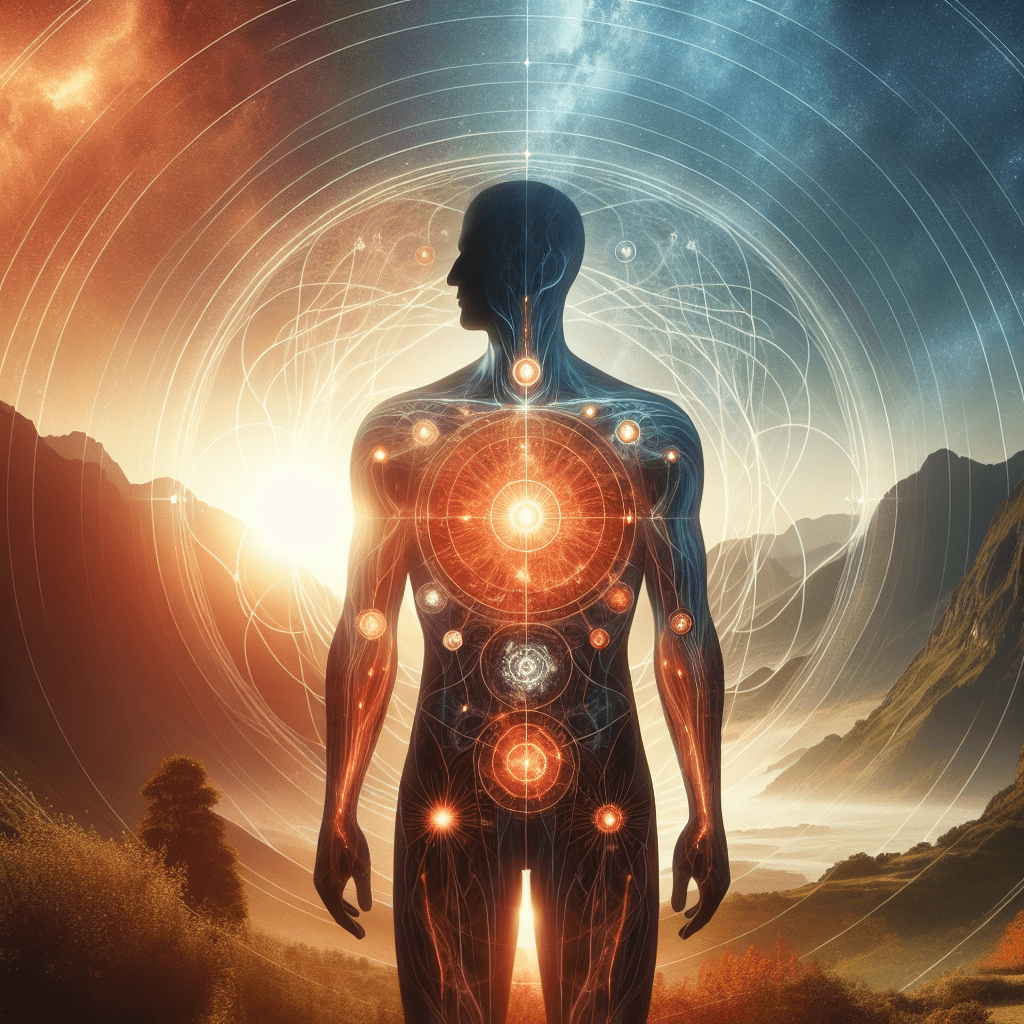Discover why personalized wellness based on your body constitution could be the missing piece in your health journey.
Have you ever wondered why that health trend your friend swears by doesn’t work for you? Or why some people thrive on a raw food diet while others feel constantly cold and depleted on the same regimen? The answer might lie in your unique body constitution—a concept that has guided Eastern medicine practitioners for thousands of years.
Body Constitution Assessment is like decoding your personal health DNA. It offers insights into your inherent strengths, weaknesses, and tendencies, creating a roadmap for truly personalized wellness. Unlike one-size-fits-all health approaches, understanding your body constitution empowers you to make choices that align with your unique physiological makeup.
What Is Body Constitution Assessment?
Body Constitution Assessment is a foundational concept in Traditional Chinese Medicine (TCM) that evaluates your overall health condition based on inherited traits and acquired characteristics. It’s essentially your body’s baseline operating system—the way your body naturally functions, responds to environmental factors, and handles stress.
Think of it as your health blueprint—a comprehensive picture of your physical, mental, and emotional tendencies that can guide everything from what you should eat to how you should exercise and even how you might respond to certain medications or treatments.
Unlike Western medicine’s focus on treating symptoms, Body Constitution Assessment takes a proactive approach to health by identifying potential vulnerabilities before they manifest as disease. It’s the difference between waiting for your car to break down and understanding its mechanical tendencies to prevent problems before they occur.
How Body Constitution Is Assessed
Traditional Chinese Medicine practitioners typically use a combination of four examination methods to determine your body constitution:
- Observation (Wang): Examining your physical appearance, including complexion, body build, demeanor, and tongue diagnosis
- Listening and Smelling (Wen): Evaluating your voice, breathing, and body odors
- Questioning (Wen): Asking about your medical history, lifestyle habits, and symptoms
- Palpation (Qie): Feeling your pulse and abdomen to gather information about your internal organs
Modern approaches have standardized this process through questionnaires like the Body Constitution Questionnaire (BCQ), which evaluates various aspects of your health through targeted questions about your physical signs, emotional tendencies, and environmental sensitivities.
These questionnaires typically include questions about:
- Your energy levels throughout the day
- How you respond to different weather conditions
- Your sleep patterns and quality
- Digestion and food preferences
- Emotional tendencies and stress responses
- Common physical complaints or sensations
The assessment isn’t about labeling you as “healthy” or “unhealthy” but rather identifying your natural patterns and tendencies so you can work with them instead of against them.
Understanding Different Body Constitution Types
Traditional Chinese Medicine recognizes several distinct body constitution types, each with its own characteristics and health implications. Here are some of the most common types:
Balanced Constitution (Ping He)
This is the ideal state where all elements are in harmony. People with a balanced constitution typically have good energy levels, digest food well, sleep soundly, and adapt easily to environmental changes. They’re less prone to illness and recover quickly when they do get sick.
Qi Deficiency Constitution
If you tire easily, speak softly, and tend to catch colds frequently, you might have a Qi Deficiency constitution. People with this type often experience:
- Low energy, especially in the morning or after activity
- Shortness of breath or weak voice
- Tendency to sweat spontaneously
- Poor appetite or loose stools
- Vulnerability to pathogens
Yang Deficiency Constitution
Those with Yang Deficiency typically feel cold easily and have poor circulation. Common characteristics include:
- Cold hands and feet, even in warm weather
- Preference for warm drinks and environments
- Pale complexion
- Lower energy levels
- Tendency toward watery stools
- Frequent urination, especially at night
Yin Deficiency Constitution
In contrast, Yin Deficiency manifests as internal heat symptoms:
- Feeling warm or flushed, especially in the afternoon
- Dry mouth, skin, or hair
- Night sweats
- Restlessness or insomnia
- Constipation
- Tendency toward anxiety
Blood Stasis Constitution
This constitution is characterized by poor circulation and blood flow issues:
- Dark complexion or lips
- Sharp, fixed pains
- Tendency to bruise easily
- Dry, rough skin
- Irregular menstruation with clots (for women)
- Poor memory
Phlegm-Dampness Constitution
If you have a Phlegm-Dampness constitution, you might experience:
- Feeling of heaviness in the body
- Tendency toward obesity
- Sticky sweating
- Excess mucus production
- Foggy thinking
- Difficulty waking up in the morning
Damp-Heat Constitution
This constitution combines excess moisture with heat signs:
- Oily skin and acne
- Yellow-tinged secretions
- Foul body odor
- Irritability
- Thirst but little desire to drink
- Difficult, burning urination
Understanding which constitution or combination of constitutions you have is key to creating an effective personalized health strategy. Most people aren’t purely one type but rather a combination of several, with one or two predominant patterns.
Interpreting Your Assessment Results
“The greatest medicine of all is to teach people how not to need it.” – Hippocrates
Once you’ve identified your body constitution type, the real work begins—translating this knowledge into practical health decisions. Here’s how to interpret and apply your assessment results:
Dietary Adjustments
Your body constitution provides valuable clues about what foods will nourish or deplete you:
Qi Deficiency: Focus on easily digestible, energy-rich foods like sweet potatoes, rice, chicken, dates, and ginger. Small, frequent meals are often better than large ones.
Yang Deficiency: Emphasize warming foods like lamb, chicken, ginger, cinnamon, and warming spices. Avoid raw foods, cold drinks, and excess salt.
Yin Deficiency: Choose cooling, moistening foods like tofu, seaweed, pears, watermelon, and leafy greens. Limit spicy foods, alcohol, and caffeine.
Blood Stasis: Include blood-moving foods like saffron, turmeric, red dates, and berries. Cook with vinegar occasionally, which helps move blood.
Phlegm-Dampness: Reduce dairy, refined carbohydrates, and greasy foods. Incorporate bitter foods like asparagus, celery, and radishes.
Damp-Heat: Choose cooling, drying foods like mung beans, cucumber, and chrysanthemum tea. Avoid alcohol, fried foods, and hot spices.
Exercise Recommendations
Different constitutions benefit from different types and intensities of exercise:
Qi Deficiency: Gentle, consistent exercise like walking, tai chi, or swimming is best. Avoid exhausting workouts.
Yang Deficiency: Choose warming exercises like brisk walking or jogging, and avoid exercising in cold environments.
Yin Deficiency: Calming exercises like yoga, tai chi, or qigong help prevent further depletion. Avoid hot yoga or intense cardio that generates too much heat.
Blood Stasis: Regular moderate exercise that promotes circulation is beneficial—think dancing, cycling, or swimming.
Phlegm-Dampness: More vigorous exercise that induces sweating can help resolve dampness, such as brisk walking, jogging, or aerobics.
Damp-Heat: Choose cooling exercises like swimming or exercising in the early morning. Stay well-hydrated.
Lifestyle Modifications
Your constitution also suggests optimal lifestyle habits:
Qi Deficiency: Prioritize adequate rest and avoid overworking. Regular sleep schedules are crucial.
Yang Deficiency: Keep warm, especially your lower back and feet. Consider a morning routine that includes gentle warming exercises.
Yin Deficiency: Create space for relaxation and stress reduction. Meditation, deep breathing, and adequate sleep are essential.
Blood Stasis: Avoid sitting for long periods and incorporate stretching throughout your day. Dry brushing can help stimulate circulation.
Phlegm-Dampness: Keep a consistent sleep schedule and avoid late-night eating. Decluttering your environment can also help clear mental fog.
Damp-Heat: Stay well-hydrated with room-temperature water and ensure your living space is well-ventilated.
Applying Body Constitution Knowledge in Daily Life
Understanding your body constitution transforms routine decisions into opportunities for health optimization. Here’s how to apply this knowledge throughout your day:
Morning Routine
Start your day in alignment with your constitution:
- Qi or Yang Deficiency: Begin with warm water with ginger to kindle your digestive fire.
- Yin Deficiency: Try a few minutes of gentle meditation before checking emails or social media.
- Phlegm-Dampness: A morning walk or brief exercise session can dispel lingering grogginess.
Meal Planning
When planning your meals, consider not just what to eat but how:
- Qi Deficiency: Cook foods thoroughly and eat while sitting in a calm environment.
- Yang Deficiency: Serve foods warm or hot, never straight from the refrigerator.
- Blood Stasis: Include a variety of colors in your meals to ensure diverse antioxidants.
- Damp-Heat: Eat lighter dinners earlier in the evening to support proper digestion.
Seasonal Adaptations
Your constitution needs may shift with the seasons:
- Winter: Yang Deficiency types need extra protection from cold, while Phlegm-Dampness types should be careful not to overeat.
- Spring: Yin Deficiency types may need to moderate activity as energies rise.
- Summer: Damp-Heat types should focus on cooling foods and activities.
- Fall: Qi Deficiency types benefit from focusing on immune support as seasons change.
Stress Management
Different constitutions respond best to different stress-reduction techniques:
- Qi Deficiency: Gentle nurturing practices like aromatherapy or warm baths
- Yin Deficiency: Cooling practices like meditation or gentle yoga
- Yang Deficiency: Warming practices like movement or social connection
- Blood Stasis: Practices that promote flow, like dance or expressive arts
Common Mistakes to Avoid Based on Your Constitution
Warning: Wellness Mistakes Ahead!
Avoiding these common pitfalls can make the difference between thriving and merely surviving on your wellness journey.
Understanding your body constitution helps you avoid these common wellness pitfalls:
Following trendy diets without consideration for your constitution: That raw food diet might be perfect for someone with Damp-Heat but could severely weaken someone with Yang Deficiency.
Exercising incorrectly for your type: High-intensity workouts might benefit some constitutions but could deplete others. Exercise should leave you feeling energized, not exhausted.
Ignoring seasonal influences: Your constitution needs different support as seasons change.
Taking supplements blindly: What strengthens one constitution might imbalance another. Adaptogenic herbs, for instance, work differently depending on your constitutional needs.
Pushing through fatigue: While some constitutions benefit from pushing boundaries, others need to honor their limitations to prevent depletion.
The Future of Personalized Wellness
Body Constitution Assessment represents the original form of personalized medicine—a approach that modern healthcare is only beginning to embrace. Today, tools like EASTCHI AI from HerbalsZen are bringing this ancient wisdom into the digital age, making personalized Eastern medicine recommendations accessible to everyone.
By combining the time-tested wisdom of Body Constitution Assessment with modern technology, we can create truly personalized health strategies that work with our unique physiological makeup rather than against it.
Understanding your body constitution isn’t just about avoiding illness—it’s about optimizing your wellbeing by making choices that support your natural tendencies. It’s the difference between forcing yourself to fit a generic health mold and crafting a lifestyle that feels effortless because it aligns with who you truly are.
Take time to learn about your body constitution, whether through traditional assessment methods or modern tools like EASTCHI AI. The insights you gain will serve as your personal roadmap to better health—one that respects and honors your unique physiological blueprint.
When we align our health practices with our individual constitutions, we stop fighting against our nature and start working with it. The result isn’t just better health—it’s a deeper connection to our bodies and a more intuitive understanding of what true wellness means for each of us.




